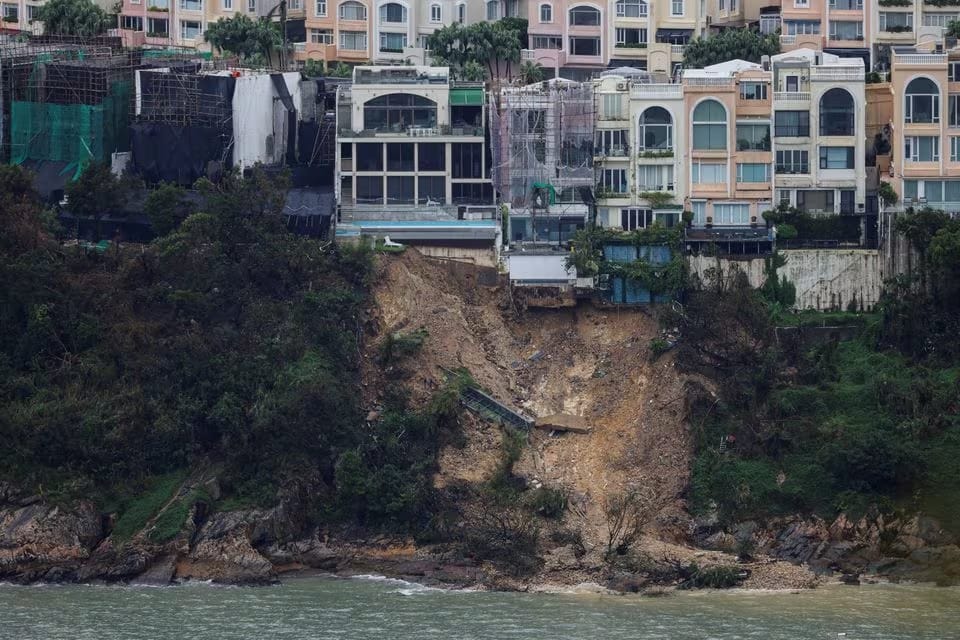What’s with all the illegal extensions on luxury homes in Hong Kong?
These add-ons weren’t approved by the Buildings Department, and they’ve been under the radar for about a decade.

A few minutes every morning is all you need.
Stay up to date on the world's Headlines and Human Stories. It's fun, it's factual, it's fluff-free.
It can be hard to find a home in Hong Kong where buildings aren’t obstructing your view – unless you live in the New Territories or you have lots of cash to splash.
But many houses in areas like Clear Water Bay on the Kowloon side and Tai Tam on Hong Kong Island, known for their amazing views and luxury price tags, have been found to have unauthorized add-ons, like rooftop structures or extensions that were built onto government or public land. It’s all part of what’s being called the invisible land grab.
These add-ons weren’t approved by the Buildings Department, and they’ve been under the radar for about a decade. That was until black rain in September caused floods and landslides, exposing these secret build-outs.
The South China Morning Post (SCMP) investigated some estates in Hong Kong that have unauthorized add-ons to uncover the extent of this issue and what can be done about it.
The area that initially drew the attention of the government was the Red Hill Peninsula, a luxury housing estate in Tai Tam. Black rain had caused falling rocks and mud, but this became more dangerous because of the add-ons some residents had, meaning they had to evacuate their homes. An inspection by authorities at the time found that at least 69 of the 85 coastal houses had unauthorized extensions.
But this isn’t the only area where you’ll find these secret add-ons. SCMP said that checks and interviews with engineers and surveyors revealed it’s common to find these in upmarket estates across Hong Kong because of a lack of enforcement and emboldened owners.
Ironically, “Many of the people accused of owning illegal structures are the ruling class itself,” said Brian Wong from Liber Research Community. Some high-level officials have already faced public scrutiny over their add-ons and found themselves at a loss, despite having the means to get legal representation.
Lawmaker Tony Tse Wai-chuen, who represents the architectural, surveying, planning and landscape sector, believes that authorities need to enforce higher penalties and match the value of a person’s luxury home to make sure homeowners face the consequences. But luxury homes with illegal add-ons are still in high demand in the real estate market.
In light of this, authorities are currently working on a proposal to tighten building laws, including raising the max penalty for breaking the rules and lowering the threshold for prosecuting homeowners with illegal structures on their properties.




Comments ()